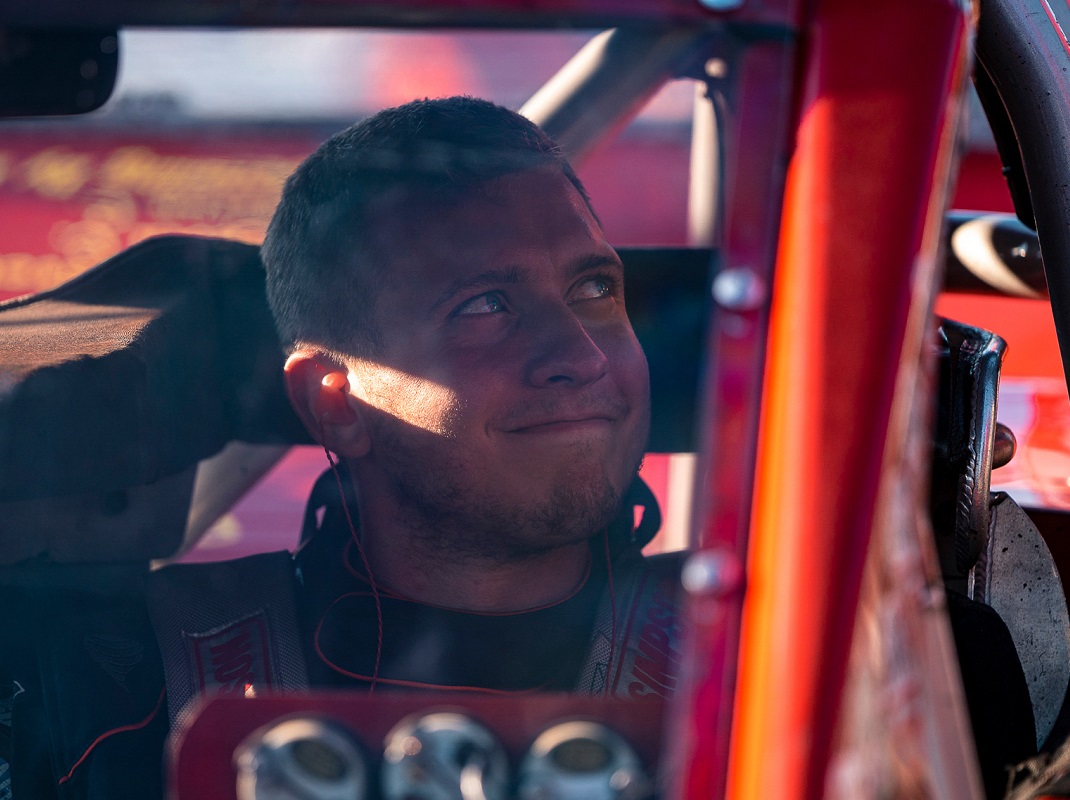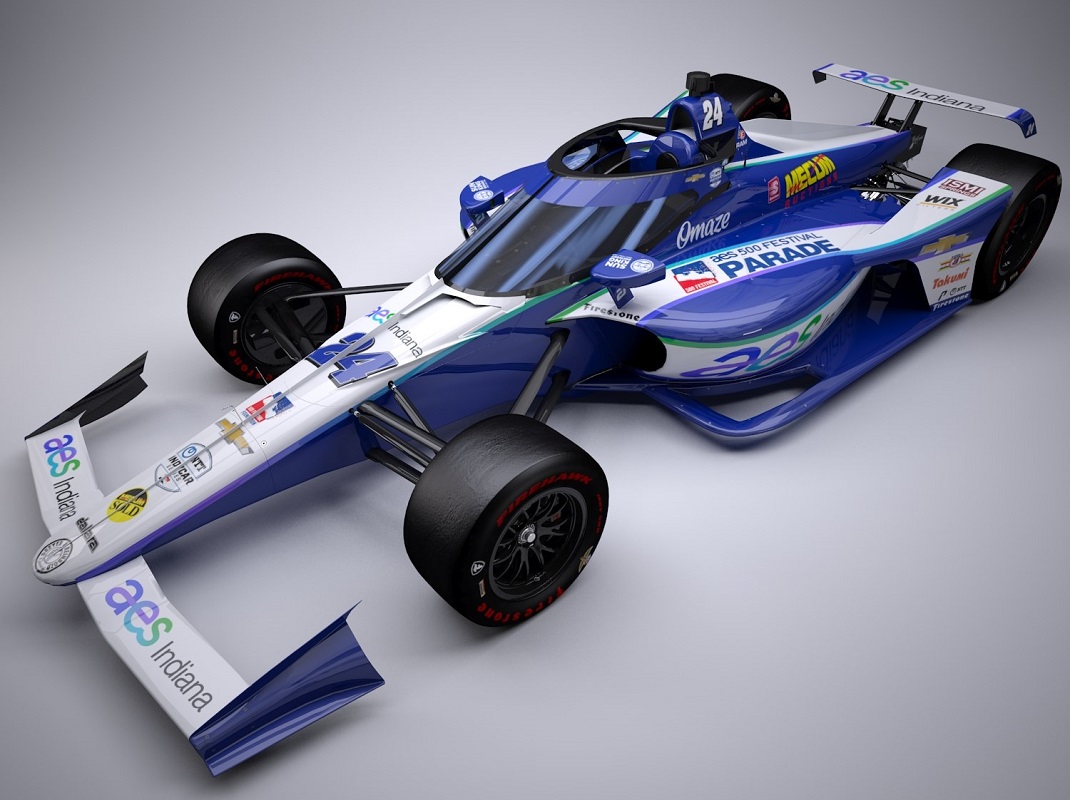April 1, 2014 — Blog by Managing Editor Jacob Seelman for Race Chaser Online — photo courtesy Hooters — April Fool’s Day is supposed to be about trickery and friendly jokes, and on that fateful day, many people actually thought it might have been a joke at first.
It had to be. There was no way this could happen. Not to the defending champion, suddenly being hailed as one of NASCAR’s brightest stars.
The only problem that day was, it wasn’t a joke.
The day was April 1st, 1993. The place; Kingsport, Tennessee, near Bristol. But it was the news that shocked the world. Alan Kulwicki, the 1992 and defending Winston Cup Champion, dead in a plane crash after icing on the wings sent the small commuter flight down and struck an end to one of the most likable and improbable champions the sport has ever seen.
Kulwicki was born and raised in Greenfield, Wisconsin; a suburb of Milwaukee with a rich Polish-American heritage in the shadows of the legendary Milwaukee Mile. But while Kulwicki achieved much in that small town, he also lost just as much at a young age. First, his mother died while Kulwicki was in the second grade. Then his grandmother, who Kulwicki had moved in with after his mother’s passing, died five years later. And the next year, his only brother was gone, by complications from a blood-related illness.
Three deaths. A trio of heartbreaks in a span of six years.
But while the deaths were difficult, they gave Kulwicki a sense of self-reliance and independence that would ultimately shape him into the man who could win the sport’s highest honor virtually alone.
“It goes way back in my childhood,” Kulwicki told the New York Times back in 1992, explaining his need for control. “And after all of that happened, my dad was gone racing a lot of the time, so I had to learn how to do things for myself. I just became that much more determined to do them.”
Besides just his need for independence, Kulwicki was an outlier, an anomaly in a sport bred in the South. Having grown up near Milwaukee, he was a true northerner in a Southern-dominated sport, and he was also the first full-time driver with a college degree (in mechanical engineering from the University of Wisconsin-Milwaukee). He sought to show race fans that the best drivers weren’t always born and raised in the sport’s heartland.
Before he made it to the Cup level, though, Kulwicki raced go-karts and watched his father Gerry work as an engine-builder for Norm Nelson and Roger McCluskey in the USAC ranks. But while his father inspired him to jump into racing, he was not able to help Alan in his own racing because he was away so much traveling.
Kulwicki told the story to the Times before his death, saying that he asked his father once while working on a kart at the racetrack, “Why don’t you do it? You can do it better.”
Gerry’s response? “Well, if you do it for a while, you can do it better.”
And that’s exactly what Alan did. After mastering his mechanical craft and figuring out every in and out he could of how to make his race vehicles go, and go fast, Kulwicki sold all his possessions save for a pickup truck and his race car (so he would never go back) and left Wisconsin in 1984. His destination was Charlotte, the hub of NASCAR racing, where he hoped to break into NASCAR glory.
Kulwicki made an immediate impact on the sport that resonated among both fans and his competitors. His talent was unquestioned and his ability to race clean even when those around him were beating and banging was remarkable. Add that to his mechanical knowledge in an age when a lot of drivers didn’t know whether they were looking at a track-bar or a shock mount and you had a scary combination.
Scary good, mind you.
Ray Evernham said of Kulwicki in Ed Hinton’s 2001 book Daytona: from the Birth of Speed to the Death of the Man in Black, “The man was a genius. There’s no question. It’s not a matter of people just feeling like he was a genius. That man was a genius. But his personality paid for that. He was very impatient, very straightforward, very cut-to-the-bone.”
His lack of trust for outsiders to do the job properly made Kulwicki a hard man to work for, but in 1988 he found the crew chief that would launch his career into the stratosphere. Paul Andrews, recommended to Kulwicki by Rusty Wallace at the 1987 championship awards banquet, took to the top of the pit box and clicked with the mechanically-minded Kulwicki instantly.
The result? Kulwicki scored the first of his five career victories in the penultimate race of 1988 at Phoenix International Raceway by more than 18 seconds after Ricky Rudd’s engine expired in the closing laps, and proceeded to celebrate by circling around the track clockwise in what he called his “Polish Victory Lap”.
“Doing that gave me the opportunity to wave to the crowd from the driver’s side,” Kulwicki explained during his victory lane celebration after the win. “It was special.”
What made Alan Kulwicki different from the rest was his determination, his spirit and his drive for success, and every one of those qualities was on display in 1992 at Atlanta Motor Speedway.
The race was an epic conclusion to a remarkable season. Six drivers (Kulwicki, Davey Allison, Bill Elliott, Harry Gant, Kyle Petty and Mark Martin) came into the event with a mathematical shot to claim the season championship. The race was Richard Petty’s swan song, and the first start ever for a young upstart named Jeff Gordon who would go on to become the most successful driver in NASCAR’s modern-era.
Kulwicki, the underdog as an owner-driver, even received approval to change the lettering on his Ford from Thunderbird to “Underbird” with a pair of Mighty Mouse stickers, the same character Kulwicki had embroidered on his driver’s suit to signify that while he was looked at as small, he could still do great things.
And great things he did on that day. Kulwicki and Andrews played their strategy to perfection despite Kulwicki having lost first gear in the car early on in the event. Math-minded Kulwicki mapped out exactly how many laps he needed to lead to ensure he would claim the 5 bonus points for leading the most laps, knowing how the race was shaking out going into the final set of pit stops that it would be he versus Elliott for the title (after Davey Allison was involved in a crash that ended his day). Kulwicki stayed out an extra three laps to lead a total of 103 laps, where Elliott, the race winner, only led 102. The five bonus point swing was enough that while Kulwicki finished second on the racetrack to winner Elliott, he held on to claim the title by 10 points, at that time the closest margin in NASCAR history.
How important was that extra lap? Had Elliott led the most laps and the pair still finished one-two, the points standing would have been tied, and Elliott would have claimed the title with five wins to AK’s two wins. Kulwicki knew exactly that, and did everything he had to do, cementing his legacy forever into the NASCAR history books as the man who made it to the top, despite all odds.
At the banquet in 1992, the song “My Way”, made famous by Frank Sinatra, was played in honor of Kulwicki’s championship run, a run characterized by his unending tenacity, independence, heart, and determination to succeed in the sport he knew inside and out and loved dearly.
The run gave Kulwicki an achievement that no one could take away from him, but sadly instead, he was taken from us on that night 21 years ago. He was coming from a sponsor appearance at a local Hooters in Knoxville, Tennessee, bound for the Bristol race that weekend with his PR representative Mark Brooks (son of Bob Brooks, the president of the Hooters restaurant chain), Dan Duncan and pilot Charles Campbell. There were no survivors.
NASCAR grieved. Their champion was gone, taken too soon. Kulwicki’s hauler performed a ceremonial lap before practice at Bristol that weekend and then departed the grounds for the final time. Rusty Wallace, the eventual winner of the event, performed a ceremonial ‘Polish Victory Lap’ in his friend’s honor. But the void left by Kulwicki’s departure hit home.
Alan Kulwicki left behind a legacy to NASCAR that is unrivaled to this day in its impact. Until Tony Stewart accomplished the feat in 2011, Kulwicki was the last owner-driver to win the NASCAR premier series championship, and he did it with next-to-nothing. What characterized Alan his entire career wasn’t how much he did, but how much he did with how little. Alan’s dream, goal and career’s work was to win the NASCAR championship, and in the end, he did precisely that.
His numbers? Five wins, 75 top tens and 24 poles in 207 career starts at NASCAR’s highest level. Are they Hall of Fame-worthy? Perhaps not when looking at the numbers alone. But Alan proved his Hall of Fame merit with his never-say-die approach, and there has been a recent push to see the man nicknamed “Special K” inducted into the NASCAR Hall of Fame. I can tell you there will be few crying louder than I will to make that happen. Alan was one of the sport’s greatest champions, an inspiration to all who think they aren’t capable of great things for one reason or another. I was one of those at one time in my life, but Alan Kulwicki was an inspiration even to me. He made it happen on sheer will and perseverance alone, and became a shining example of what is possible not just in sports, but in life as well.
Alan Kulwicki was taken from us too soon for us to know what else he could have accomplished. He was only 38 years old at the time of his death. He was ninth in points headed into that Bristol event. He was poised to potentially make another remarkable run. But the possibilities were struck down the day we lost him. I wish we could have only been able to see how much more Alan might have changed the sport in the years to come. I feel like it would have been just remarkable to watch.
One thing is for sure though. Even if we never got to see what else Alan could have done, he would have done it one way, and one way only. It was the same way he broke into Winston Cup racing in 1986, the same way he reached a long-term sponsorship deal with Hooters in 1991 after the car they were sponsoring originally missed the race at Atlanta. It was the way he pushed through the darkness of his childhood and above all, the way he won the title in 1992.
He did it his way.
Godspeed Alan.



